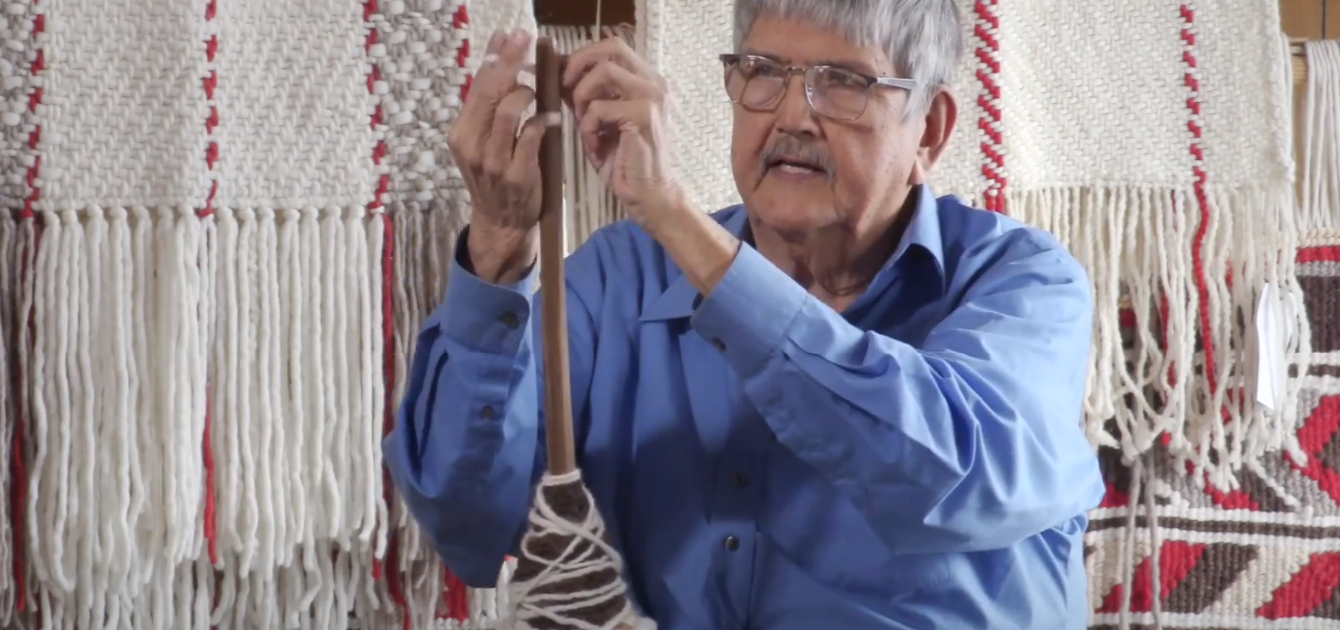Lummi hereditary Chief Bill James leaves lasting impact on Whatcom Museum
On June 1, Tsi’li’xw Bill James, a master weaver and hereditary chief of the Lummi Nation, died at age 75. We at the Whatcom Museum, along with many others, are deeply saddened by his passing.
Born on Oct. 20, 1944, James was appointed hereditary chief in 2010 for his life-long work teaching Lummi history, culture, and language.
James was incredibly generous with his time and had a deep knowledge of tribal history and language. He left a lasting impact on the Museum through his involvement developing exhibitions about the local Native American experience.
Bill James and the Whatcom Museum
Victoria Blackwell, Director of Exhibitions & Programming, consulted with James on the Museum’s People of the Sea and Cedar exhibit. The ongoing exhibit in the Lightcatcher building offers a journey through the tribal cultures and history of the Northwest Coast.
The exhibit blends both historical and contemporary perspectives. It features Coast Salish artwork and carvings, woven blankets – including one created by James – cedar hats, and more.
As part of the exhibit, James worked with the Museum and the City of Bellingham to produce Beyond the Blanket, a video about the traditions of Lummi weaving.
“His life was education and teaching the young people their culture and language,” Blackwell says. “People came to him for advice and wisdom. He was incredible.”
Mary Jo Maute, former educator and program coordinator for the Museum, worked with James often before she retired in 2017.
The Museum sought James’ input during the conception and planning of People of the Sea and Cedar.
“It was an honor and deep learning experience to facilitate some programming with Bill James for the Whatcom Museum,” Maute wrote on Instagram. “His spirit will live on through those he mentored who are keeping Lummi traditions alive through their weaving, Lummi language teaching, storytelling, and stewardship of the ancestral lands.”
Maute says James appreciated that the Museum was focusing on local tribes and including a language component.
For the Museum, it was important that the exhibit show a living, vibrant culture. Having discussions and relationships with James and other tribal members reinforced that the Museum was on the right track.
“He had a deep understanding of his role as a keeper of the Lummi tradition and stories,” Maute recalls. “I found him to be extremely humble considering all he had accomplished during his life.”
A love of language
James devoted much of his life to education and sharing the Lummi language.
Smak i’ ya’ Matt Warbus credits James with instilling in him a love of the Lummi language. The two met during James’ time teaching Lummi language classes at Warbus’ high school. Later, James got Warbus involved with Lummi language research, putting him on his career path.
Warbus, a Lummi language instructor at Ferndale High School, was instrumental in creating the language interactive in People of the Sea and Cedar.
James encouraged his participation in the Museum’s exhibit, which includes Lummi language recordings by Warbus’ students.
Warbus says James applied the Lummi language to real life, bringing the language alive.
“Being influenced by Bill is probably the greatest thing to ever happen to me,” Warbus recalls. “This is my language, my culture, my history. One of the greatest things we can do is know who we are and where we come from.”
Warbus says James was such a great teacher because of his patience and ability to put people on the right path.
“His life was about patience and understanding,” Warbus says. “It wasn’t about him. It was about the language and culture and making sure information was passed on.”
A broad impact
Bill James’ impact extends far beyond the Museum.
In a written statement, the Lummi Nation describes James and his legacy.
“He dedicated his life to learning from his elders about our history, language, and culture,” the statement reads. “He knew the importance of capturing the life experience and knowledge of our ancestors.”
James also left his mark on other museums, including the Burke Museum of Natural History and Culture in Seattle.
According to a Seattle Times article, Bill James provided the words that frame the entrance to the Burke cultural gallery exhibit: “Xechit-en schaleche l’en-tengexw: Know your relatives and where they are from.”
In a written statement, Gov. Jay Inslee spoke of James’ impact.
“Bill helped young people in tribal communities to have a deeper connection to their ancestry and their cultures. He raised awareness of Native art and language and his legacy will live on for generations.”
We couldn’t agree more.
Image credit: Bill James weaves in this screenshot from Beyond the Blanket.




